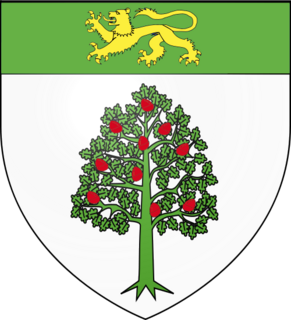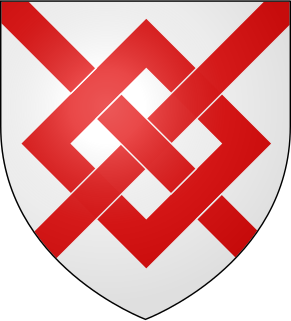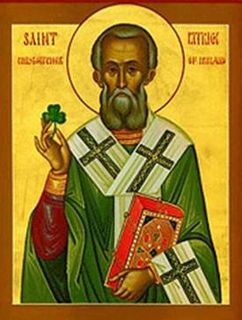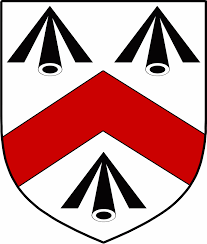See also
| This page or section lists people that share the same given name or the same family name. If an internal link led you here, you may wish to change that link to point directly to the intended article. |
Rafter is both a given name and a surname that may refer to:
| This page or section lists people that share the same given name or the same family name. If an internal link led you here, you may wish to change that link to point directly to the intended article. |

Murphy is an Irish surname.

Blake is a surname or a given name which originated from Old English. Its derivation is uncertain; it could come from "blac", a nickname for someone who had dark hair or skin, or from "blaac", a nickname for someone with pale hair or skin. Another theory is that it is a corruption of "Ap Lake", meaning "Son of Lake".
Brennan is an Irish surname which is an Anglicised form of two different Irish language surnames—Ó Braonáin and Ó Branáin. Historically, one source of the surname was the prominent clan Ua Braonáin (O'Brennan) of Uí Duach (Idough) in Osraige who were a junior Dál Birn sept stemming from a younger son of Cerball mac Dúnlainge (d.888). Recent surname evaluations highlighted the geographic consistency of this lineage in the barony of Idough.
Moran is a modern Irish surname and derived from membership of a medieval dynastic sept. The name means a descendant of Mórán. “Mor” in Gaelic translates as big or great and “an” as the prefix the. Morans were a respected sept of the Uí Fiachrach dynasty in the western counties of Mayo and Sligo. In Ireland, where the name descended from the Gaelic, it is generally pronounced MORR-ən anglicised approximate of the Irish pronunciation.
Nicky is a diminutive form of the name Nicholas and Nicole, occasionally used as a given name in its own right. It can also be used as a diminutive of Dominic. It may refer to:

Patrick from Irish Pádraig anglicized to Patrick in its earliest form, can be found as the name derived from the Latin name Patricius.
Ciarán or Ciaran is a traditionally male given name from the Goidelic languages. It means "little dark one" or "little dark-haired one", produced by appending a diminutive suffix to ciar. It is the masculine version of the name Ciara. It is also a given female name and isn't always assigned to gender.
John Lee may refer to:
Ian or Iain is a name of Scottish Gaelic origin, derived from the Hebrew given name יוֹחָנָן and corresponding to the English name John. The spelling Ian is an Anglicization of the Scottish Gaelic forename Iain. It is a very popular name in much of the English-speaking world and especially in Scotland, where it originated.
Jamie is a unisex name. It is a diminutive form of James or, more rarely, other names.
The surname Collins has a variety of likely origins in Britain and Ireland:
O'Farrell is a surname of Irish Gaelic origin. Bearers include:
Gill may be a surname or given name, derived from a number of unrelated sources:
Gibson is a surname of English origin. The name is derived from a patronymic form of the common medieval name Gib, which is a short form of Gilbert. Variant forms of the surname include Gibsoun, Gipson, Gibbson, Gibbons, Gilson, Gibb, Gibbs and Gibby amongst others.
Frank is a masculine given name.
Sweeney is a surname that, though closely associated with Ireland, is of Scottish origin, derived from the Gaelic Mac Suibhne meaning "son of Suibhne". The Gaelic personal name Suibhne was originally a byname meaning "pleasant" or "well-disposed" and is associated with Clan Sweeney. The Gaelic personal name was also used an equivalent to the unrelated Old Norse personal name Sveinn, meaning "boy", "servant".

Walsh is a common Irish surname, meaning "Briton" or "foreigner", literally "Welshman" or 'Wales', taken to Ireland by British soldiers during and after the Norman invasion of Ireland. It is most common in County Mayo and County Kilkenny. It is the fourth most common surname in Ireland, and the 265th most common in the United States. There are variants including "Walshe", "Welsh", "Brannagh", and the Irish :"Breathnach". Walsh is uncommon as a given name. The name is often pronounced "Welsh" in the south and west of the country.
Rafter may refer to:
Flanagan is a common surname with origins in either Ireland or Scotland. It is an Anglicized version of the name Ó Flannagáin.There were at least 3 separate clans in Ireland with no connection, but many others share the surname Flanagan in Glasgow, Dundee and Aberdeen. In Irish the name is Ó Flannagáin and many variations exist today. Typically these variations include Flanagan, Flanagin Flanigan, Flannigan, Flannaghan, O'Flanagan, O'Flannagain, Flaniken, Flenigenand and more. In Scots-Gaelic they remain mainly the same. All variations, apart from some exceptions can have the prefix of "O" and the name may refer to:
Clarke is an Anglo-Irish surname which means "clerk". The surname is of English and Irish origin but the original word comes from Latin for clericus. There are some surname variants, including the Clerk and Clark which predates Clarke by over 700 years. Clarke is also uncommonly chosen as a given name.